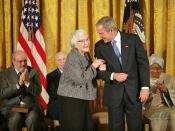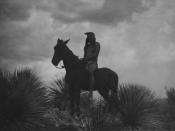Jem, Scout and Dill, who are young, develop as the novel progresses. Harper Lee shows these changes in different extremities during the course of the story. The events that occur change and help the children to develop.
The word change means many things. Change can be for the better or for the worse, and change can come in many forms. Jem, Scout and Dill change in 3 main ways: Their understanding of the society, physically and their attitudes and values. Jem, Scout and Dill change in these 3 ways, through learning and developing and when events around them help them to learn about the events and the moral connotations of these events. They learn by being taught by other people, making their mistakes and through other peopleÃÂs experiences. Learning about these things, help them to mature intellectually and socially. The events that occur to show us how the 3 youngsters are learning and developing are conveyed by Harper Lee in multiple ways.
The story is told by Jean-Louise Finch, a mature narrator compared to the young Scout portrayed in the novel. ScoutÃÂs childish view to the world around her in Maycomb is highlighted by the reader understanding events better than Scout herself. Scout is taught many things through the novel, by various people. However, most of these educational experiences seem to occur outside of school. Scout learns from Calpurnia, the black cook. One of the events mentioned above includes the dinner where Waltor Cunningham is invited to the Finch household. Waltor, a boy stuck in poverty, who doesnÃÂt get every single meal like Scout, complies hurriedly to JemÃÂs offer for dinner. Unsure of dinner manners, he pours molasses all over his food. Scout, disgusted, quickly exclaims that heÃÂs poured it all over his food. Calpurnia angrily takes her into the kitchen where she scolds Scout. Scout learns that not everybody is as privileged as her. Scout retaliates to CalpurniaÃÂs scolding, telling her that Waltor is not company, heÃÂs just a Cunningham. Calpurnia then tells her that it doesnÃÂt matter whether he was lower in the social ladder than her, because it didnÃÂt count for anything if she didnÃÂt act like a proper person. Scout learns that just because Waltor is a Cunningham, he isnÃÂt any less of a person. This is the starting point for ScoutÃÂs maturing in her attitudes. Scout also learns from Atticus. Atticus, her father, is a moral paragon. He teaches her when Scout is feeling bad about school, and he teaches her how to get along with people, ÃÂYou never really understand a person until you climb into his skin and walk around in it.ÃÂ (Page 35). Scout learns from this and tries not to judge people before thinking about how they are feeling at the moment. Atticus also teaches Scout during the rabid dog incident. Scout however, does not understand the teaching. Scout feels that true courage is masculinity and being able to take physical pain, whereas Atticus teaches her, telling her that true courage is ÃÂwhen you know youÃÂre licked before you begin but you begin anywayÃÂ (Page 118). Atticus also teaches her about the societyÃÂs prejudice, through the trial of Tom Robinson and its aftermath. Although Scout does not fully understand the prejudice, she is beginning to grasp the concept of racism. Scout also learns from Aunt Alexandra, despite the fact that Scout does not like her AuntÃÂs principles. Scout learns to become a lady late on in the book, handling the Tom Robinson case like her Aunt, like a lady. ScoutÃÂs experiences with Boo Radley also show her change in maturity and values. At the beginning of the book, she treats Boo Radley as the rest of the community do, making up rumours about him, ostracizing him. Scout however, begins to understand that Boo Radley is also a person, and this is highlighted when she is walking back home one day, ÃÂThe Radley place had ceased to terrify meÃÂ (Page 248) Scout matures overall and at the end of the novel, she retreats to reading the gray ghost, feeling she has learnt enough for the time being.
Jem changes in the novel as well. JemÃÂs attitudes and values are very similar to ScoutÃÂs at the beginning of the novel, but they soon start to change. Jem starts to mature when he begins to stop playing with Scout. He finds the games childish, and he and Scout grow further apart. Scout mentions that his appetite was appalling, and that he told her so many times to stop pestering him that she consulted Atticus. Atticus then says that he doesnÃÂt have a tapeworm, he was growing up. Jem also starts to see that Boo Radley is indeed a person much quicker than that of Scout. When Boo Radley places a blanket around Scout, ScoutÃÂs stomach turns to water because she still thinks Boo Radley is a malevolent phantom, whereas Jem begins to understand that Boo Radley may not be dangerous. Jem is also told by Atticus later that he and Scout are not to kill Mockingbirds with their new air rifles. Scout, not understanding why, asks Ms.Maudie, who tells her that itÃÂs a sin because they donÃÂt do anything but make music for their ears. Later on, as Scout is about to kill a bug, Jem stops her and tells her to put it back. Scout, not understanding why, questions him. Jem responds, saying that thereÃÂs no point in killing it. This shows us he understands AtticusÃÂ teaching in telling them not to kill mockingbirds, whereas Scout has not. This is only one of many instances where we see JemÃÂs maturity is superior to that of ScoutÃÂs. Another one of these instances is the rabid dog incident, where Scout does not grasp why Atticus did not tell them about his ability with the gun but Jem understands that Atticus does not want them to admire him for his skill with the gun but for his other values. Jem also matures greatly after his encounter with Mrs.Dubose. After thrashing her camellias for her angry outburst, Atticus forces Jem to go and read to her. Atticus teaches Jem that there are consequences for his actions and that he must take responsibility for his actions. When Atticus tells Jem that Mrs.Dubose was dying because she was trying to get off morphine, Jem understands what true courage is. Atticus then hands him her present, a camellia. Jem throws it away at first, thinking that it is her way of reminding him she is dead. This is because Jem still finds it hard to think that good and evil can co-exist in a person. Jem later, is mature enough to notice that the camellia is actually just a nice gift and Scout sees him fingering the wide petals later. Jem also starts to mature physically, which we see when he proudly shows off his chest and armpit hair to Scout. Harper Lee also shows us JemÃÂs change through the reactions of other people. Miss Maudie gives Jem a slice of her cake and Calpurnia starts to call him ÃÂMister JemÃÂ, a respectful title.
Dill also faces changes in his attitudes and values. We see this mainly after the trial when he cries because of the way Mr.Gilmer was questioning Tom Robinson. He gains knowledge about the relationship between people and different races. Dill also realizes why Boo Radley canÃÂt come out of the house. At the beginning, the children think that Boo Radley isnÃÂt allowed to come out, but Dill realizes something different, ÃÂMaybe he doesnÃÂt have anywhere to run off to..ÃÂ (Page 150) Dill understands Boo RadleyÃÂs situation because he, like Boo are in places they do not want to be, but Dill has somewhere to run to, whereas Boo is stuck. This helps Dill to understand how Boo feels and changes his attitude towards Boo.
The 3 children learn and develop through the course of the novel, and they change in different and similar ways and in different extremities. Harper Lee conveys their changes through events and people around the children, and we can see and understand their noticeable changes.
Sources used: To Kill A Mockingbird book





